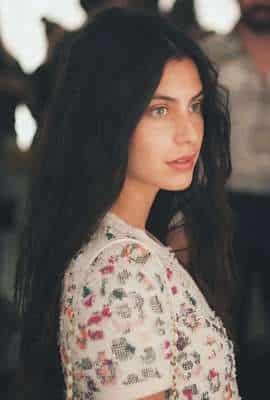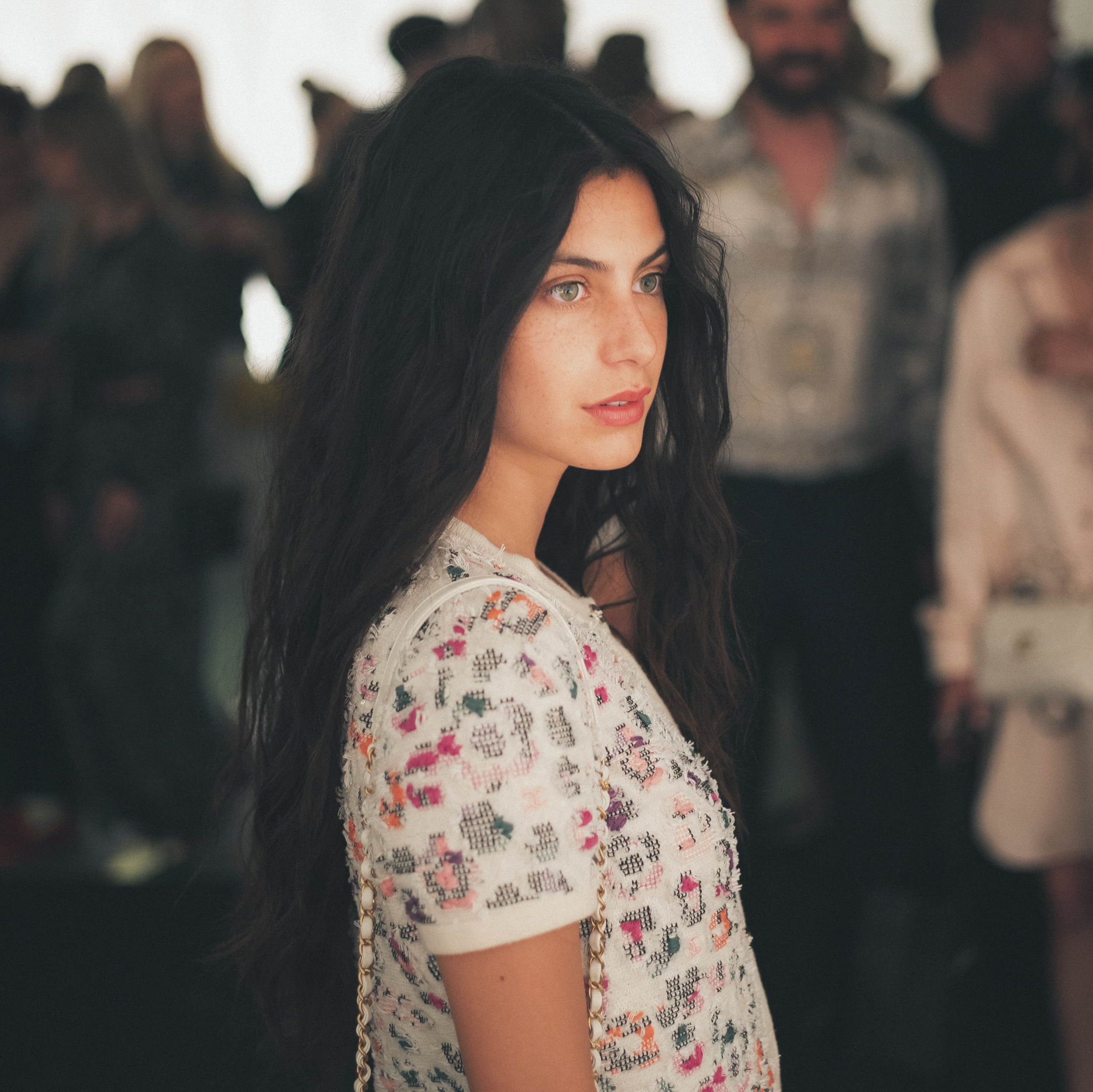
The kids are alright. That’s how a brief conversation with Fotini Peluso leaves you feeling. That Italian cinema, with its legacy of great actors—and in particular, great female actors—continues, and that they’re taking it just as seriously. “I’m always inspired by the past,” Fotini tells me, “I grew up on De Sica and Fellini. But there’s a new generation in Italy now, and we’re attempting to change the narrative.” She shot to popularity after Netflix’s teen-romp Under the Riccione Sun, but has a number of darker roles planned—mostly book adaptations of The Hummingbird and The Braid. She’s stylish, part of Chanel’s glamorous ambassadors, and also down-to-earth in a surprising way; especially considering her prominence on Italian screens, and now broader ones.

Both The Hummingbird and The Braid are adaptations of books. Is it difficult to approach a role that’s been pre-written without you in mind, and how strictly do you keep to source material?
I try to imagine the character on the basis of the script, firstly, and then read the books so I can clue myself up on everything else. Sometimes it can be confusing, because the adaptation is not always the same, so you have to respect the ideas the producers want to project on the screen. But the book can give you tips and advice to find a character. For The Hummingbird, I read the book, because the director told me she was thinking of me for the movie and this character.
She gave you a full year to prepare.
I read it and my character was my favourite. She’s troubled, so I knew it would be challenging. And again with The Braid I got the script and then found the book later. But the story was changed slightly. It was in three countries with three cultures, which was difficult to adapt.
What was it like to work with an international crew?
I love languages and cultures in general, and so to see all these people in one place just trying to understand each other…you can try to talk but after a while you start to communicate effectively with your hands and expressions. Being on set unites people. You feel that cinema can cross borders; it’s a universal language.
You accidentally fell into acting.
Yes, and it was chaotic at first because I didn’t go to an acting school until being in Paris on my university exchange year. I was studying economics, but frankly, I would’ve rather have done maths. To be honest, I loved university, and I would do it again a million times over. But I had to make the choice in the end.
Who was your style icon growing up?
My mother. She taught me there is no clear rule, and you have to just enjoy what you wear; not what others tell you. It’s something related to your identity, our shapes are all different. It can be an objective and subjective concept at the same time, because there are fashions that are cool. But then there is a grey area, a deep space to be creative. My mother used to take me to vintage markets. She would find things you couldn’t imagine—and outside of present trends.
Is there a motivation no one knows about that pushes you forward?
My fear of returning to economics [laughs]. No, I have my habits. I used to repeat my name over again in my head to keep me going. I’m sure it’s egocentric—and maybe I am in some ways—but it helps me to concentrate. I also cry a lot, whether I’m stressed or happy. It relieves tension and afterwards, I feel as though I can start over. I know it’s weird. It’s pretty fringe, eh?
It’s a way of handling your emotions.
I’ve been doing it since I was little. I would put myself in front of a mirror and cry just to see how my face was changing. I also pray a lot. Even when I’m not sad. I guess it’s connected to my Greek roots. It’s a very passionate, tragic culture. My grandma was a huge point of reference, and I’m inspired by my visits to Greece as a child. And believe me, I wouldn’t be the same person without Greek music.
You were obsessed with Marilyn Monroe growing up.
I remember the first time I saw her very clearly. I was five-years-old, and there was a documentary of her life on television. I immediately fell in love with her. She was an icon, and she had such personality—it was explosive, and what a woman. After the documentary, I was blaming my mother that I wasn’t blonde, as though it was her fault. Vanity Fair actually did a make-up transformation to make me look like Marilyn, and it was a dream come true; a real gift. But I realised I could never be her. I can only be me. Also, I was happy to learn she had dyed hair. I also loved Monica Vitti. She is certainly someone who had the roles I would like to portray in my career. Who knows?





